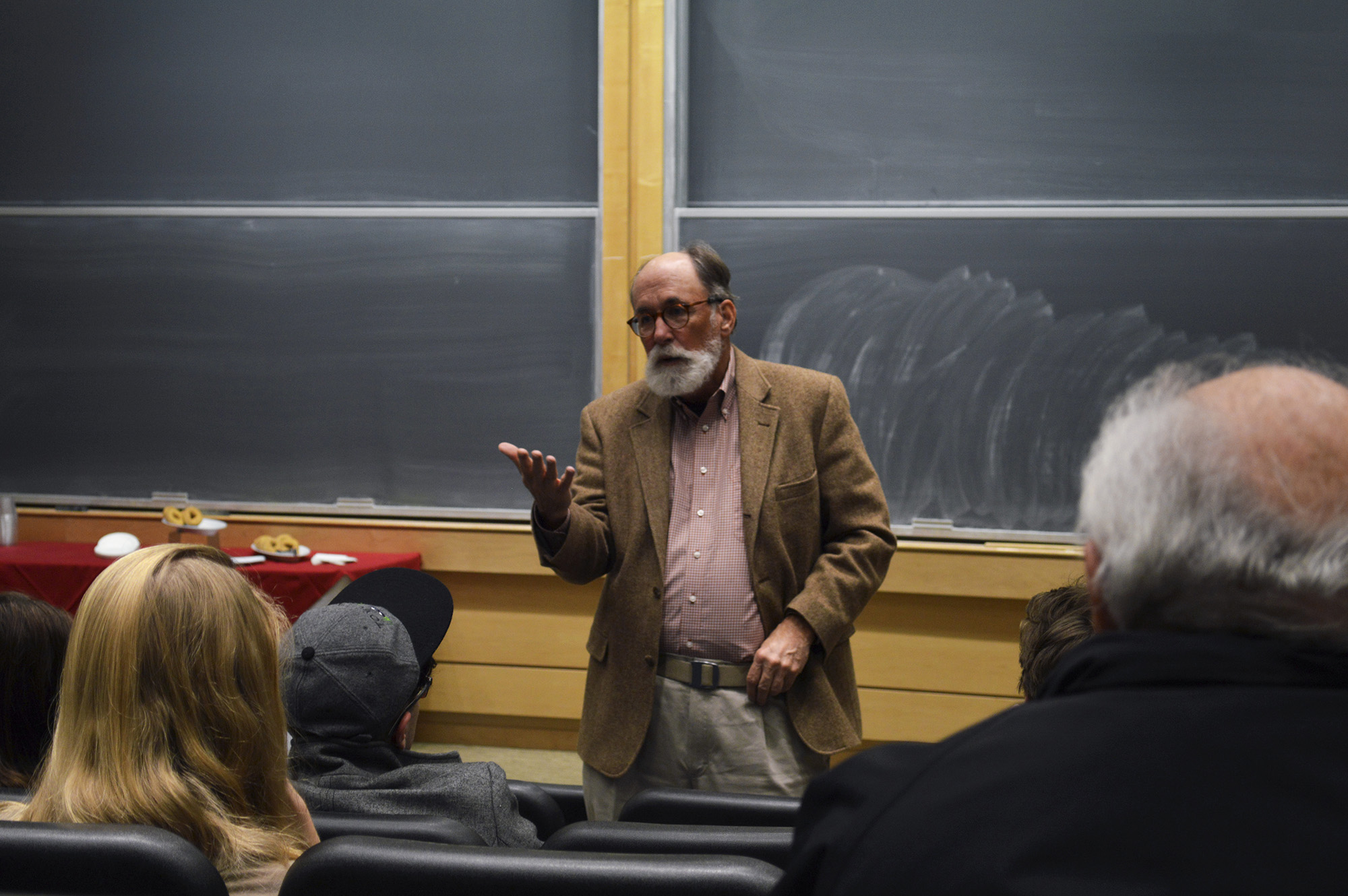
The uneven cadence of fingers on a keyboard is almost background music in residence halls and academic buildings on campus. It could have been yesterday, when Lucas Phillips ’16, editor-in-chief of the campus’ newspaper, The Spectator, checked his email for contributions by his staff; or it may have been more than five decades before, when Henry Allen ’63 sat in his Kirkland Dormitory bedroom completing homework on his typewriter.
With the golden quill atop its chapel and the Nesbitt-Johnston Writing Center nestled firmly in KJ, Hamilton continues to draw students who are passionate about writing and eager to hone their skills. However, Allen, who first arrived on the Hill in 1959 and studied under both of the center’s namesakes, Professors of English George L. Nesbitt (1903-1985) and Thomas McNaughton Johnston (1904-1986), is not sure that this mission is accomplished as fully as it once was.
Rather than to offend Hamilton, Allen meant to accentuate the degradation of society’s ability to write effectively. Not only does this apply to the layman and the student, but in fact, “Writing is much forgotten in journalism,” he quipped, “but quite important, and quite important to me [as well].” Getting to the root of the problem, he explained that this trend reflects a change in the mission of colleges, conforming to neoliberal pressures to increase marketability.
Hailing his college days, Allen recalled writing papers weekly, knowing that each was a “threat of expulsion” if it didn’t meet strict Hamilton criterion. While Allen and his classmates had four writing assignments a month, current students “have a minimum of four papers per semester in [writing intensive] courses.” Allen acknowledged that “writing is like music, you [either] have a talent for it or you don’t;” nevertheless, “[writing intensive courses] teach people with no talent how to write with clear diction and prose,” a skill that cannot be overvalued.
As Allen sees it, valuing and teaching writing is how to “show care towards and feed civilization,” compared to today, where students are primarily concerned with “expressing themselves and [tend to] view civilization with a grudge.” Following the heralding in of the digital age, which has increased both the quantity of and access to informative sources, Allen noted that “the decline of writing has accompanied the decline of newspapers.”
In fact, The Washington Post, where Allen worked for 39 years, now has roughly half the number of subscribers as it did in the 1980s. This doesn’t mean that the public is less-informed than previously; rather, “it doesn’t matter how [the piece] is written because it will already be told to the public by other sources. Words don’t matter as much anymore, [and articles are] more like a form [that] print journalists fill out after events.”
This transmogrification is particularly unsettling for Allen, who was developing his craft in the days of Arthur Miller and JD Salinger, Jack Kerouac and Ernest Hemingway, or “the Era of Writers,” as he put it. “It was an age that is now over,” he memorialized, “literary writers have abandoned their cabins for faculty offices; now jobs require MFAs instead of talent; quantity has replaced quality, [seen in] the formulaic stories of John Grisham; authors hire ghostwriters to produce their own work, like James Patterson; it’s a business, it’s manufacturing, you need no more proof than that writers are now called ‘content providers.’”
Allen recognized how modern society has become over politicized, and suggested it may affect students’ development of clear writing: “We [Hamilton students] never could have done it if we were concerned pruderies of political correctness and ‘trigger words.’ This politicization began in the 60’s, and today there is political analysis of everything. It doesn’t baffle me,” he stated, “I understand it, but it doesn’t get me anywhere.”
Even after all of this, Allen admitted that, “No one knows where journalism is today.” He compared himself, and those who share his sentiments about the field’s current state of duress, to “Irish monks preserving the illuminated manuscripts through the Dark Ages.” One such colleague is Ben Montgomery, founder of the site Gangrey, whose motto is ‘Prolonging the slow death of newspapers.’
There is money to be made in writing fields, Allen stated, although it often requires choosing between high viewership and well-conceived pieces. Self-indulgence serves no role in quality writing: “Good writers are smart enough to realize that the material they’re working in is not their feelings, it’s your feelings; they need to inspire, to manipulate, to create your feelings through their writing. Writing is a lonely business, but it’s done with the hope of connecting to another human being, and if you choose to write meaningfully, then you have to be willing to listen to silence.”
Posted November 3, 2015
